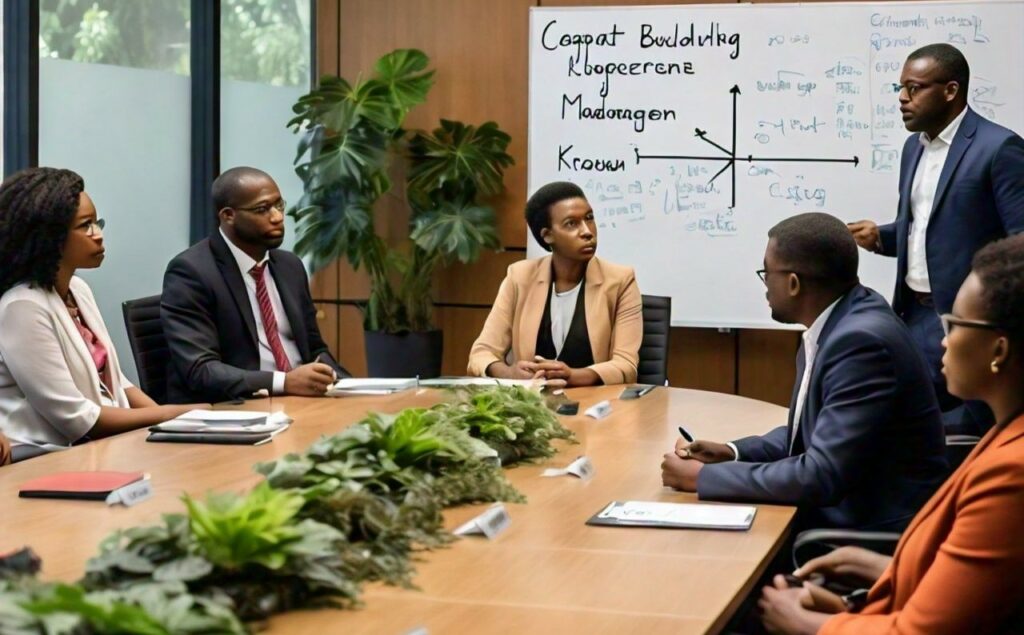
Introduction and Background
Food Rights Alliance (FRA) is a coalition of over 40 members comprised of local and international NGOs working on issues of agriculture, food and nutrition security at household, community, and national levels. FRA envisions a “World free from hunger and malnutrition” and promotes sustainable access and consumption of adequate, safe, and healthy diets for all. The Alliance achieves its mission by building a formidable and diverse network of members and stakeholders that influence policy and practice at different levels; profiling and engaging champions on critical issues on the realization of the right to adequate food, and equipping stakeholders with credible knowledge and information to flag the right to food agenda in policy and practice. FRA contributes to democracy and good governance by upholding the key tenets of participatory democracy; inclusiveness, responsiveness, consciousness, mutual accountability, collective action, and participation in decision-making. The Alliance organises civil society into issue-focused influencing groupings and enhances collective planning, knowledge and information sharing, and collective action.
Food Rights Alliance (FRA) is implementing a two-year Democratizing Africa through a Just and inclusive Agri-food System (DAAS) project with support from the Open Society Foundations (OSF). The project is being implemented in Uganda with activities at the East African Community and continental level. The goal is to Advance Equity and Justice in Africa’s Agrifood system by addressing injustices, low civic consciousness, and strengthening policy, legal, and institutional frameworks to provide justice and equity to vulnerable actors. This will be achieved through Connecting struggles; Organizing Farmers; Evidence-based advocacy; Community Advocacy Empowerment; Support access to legal aid for the marginalized.
Rationale of the Assignment
Organizations today are operating in a dynamic and complex development landscape where knowledge and information are essential assets for achieving their mission and goals. It is important for an organization to have a robust KM system for responding effectively to changing contexts, trends and priorities for continued relevance and impact in the face of complex development challenges.
Knowledge Management (KM) is crucial not only for organizations to leverage their knowledge and expertise, enhance program delivery but also to better understand how to improve its resource mobilization efforts. This requires effective implementation of KM practices like documentation, knowledge sharing, mentorship are critical for improved organizational operations and impact. This enhances capacity of the organization, knowledge mapping among others leading to better program delivery and innovation. It also fosters a culture of continuous learning and improvement more so encouraging sharing of best practices, promoting transparency and accountability resulting in credibility and trust among stakeholders. Further, KM supports evidence-based decision-making and strategic planning enabling organizations to make informed decisions and drive strategic direction.
By investing in KM, organizations like Food Rights Alliance (FRA) can harness the power of knowledge to drive innovation, improvement and competitiveness to ultimately sustain its agenda. Against this background, FRA is planning to conduct a capacity building sessions for FRA staff and Members on Knowledge management.
Objectives of the Assignment
The overall objective of this assignment is to facilitate the training of FRA staff and members aimed at enhancing their capacity in Knowledge Management (KM) for improved program delivery and resource mobilization efforts. Specifically, the assignment seeks to;
- Equip FRA staff and members with effective KM practices for enhanced organizational learning, innovation and impact.
- Identify gaps, challenges and opportunities for strengthened knowledge management system of the Alliance.
- Explore KM strategies that can be leveraged for improved fundraising and partnership development.
Deliverables
- Approved training program and working schedule highlighting key topics to be covered
- PowerPoint presentation and Final training report.
Time Span
The assignment will be completed in two working days. One (1) day for preparation, one (1) day for the actual delivery of the training.
Competences, Experiences and Qualifications
- At least a Master’s degree in Knowledge Management, Information Science or related fields
- Minimum three (3) years of professional experience in a field related to Knowledge Management, capacity building, and training.
- A track record of undertaking similar assignments with competent organizations.
- Proven skills in capacity building of local NGOs, with experience providing trainings on the above-mentioned topics.
- Excellent communication and facilitation skills, distinct but moderate and enabling rather than imposing.
Work plan
| Activity | Deliverables | Timeframe | Responsible Person |
| Development of TORs | Terms of Reference | 23rd May, 2024 | FRA |
| Submission of EOI | Letter of EOI; Financial Proposals | 30th May 2024 | Applicants |
| Identification and Recruitment of consultant | List of Expressions of Interest | 31st May,2024 | FRA |
| Contracting the Consultant | Signed contract | 4th June, 2024 | FRA and Consultant |
| Conducting the training in KM for FRA staff and board | Inception report, presentations and training report | 6th June, 2024 | Consultant |
Contents of the bid
Information needed while submitting expression of interest includes;
- Letter of interest in regard to the TORs in this link: ToRs for the Capacity Building Session on Knowledege Management-final.pdf
- Fill the Technical proposal (clearly showing the methodology, plan of action and interpretation of the TORs). Access the template from the link: Expression of Interest-Template.docx
- Any comments/suggestions in relation to this consultancy
- Detailed profile of the applicant, indicative of previous relevant experience.
Statement Of Safeguarding:
According to FRA’s organizational value of accountability, it is our policy to safeguard all individuals involved in FRA’s work against risks of exploitation and abuse. FRA will not tolerate exploitative or abusive behaviors by anyone associated with the implementation of FRA’s work.
Submission of proposal
Interested consultants (individuals and firms) with experience in executing similar assignments are invited to submit their expression of interest/bids by 30th May, 2024 with the subject field “Expression of Interest – Knowledge Management Training for FRA Board and Staff” addressed to; Executive Director Email: fra@fra.ug. Only complete bids submitted by mail will be considered.
